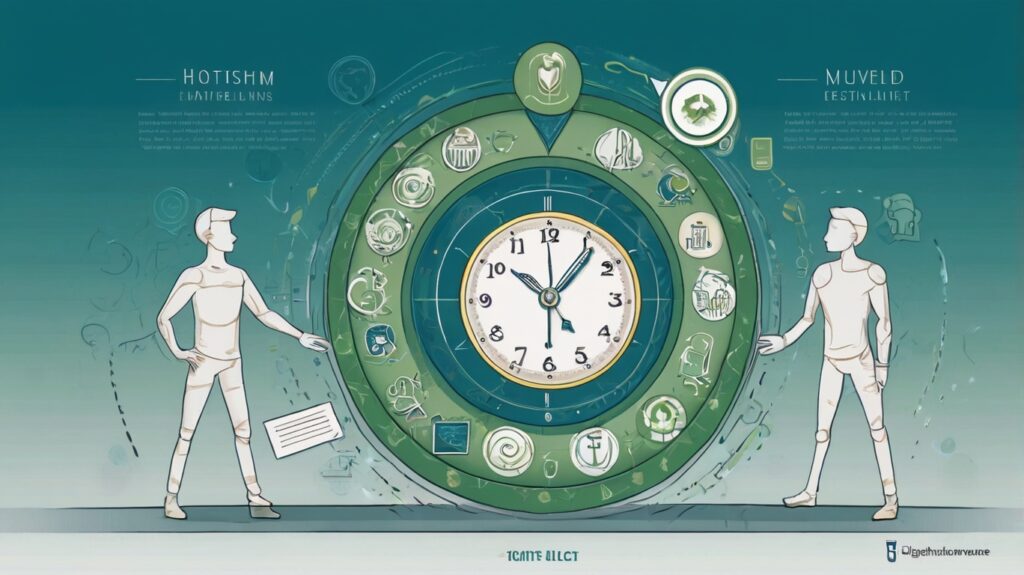Trust forms the bedrock of every meaningful relationship, whether romantic, familial, professional, or platonic. Without trust, relationships become fragile, marked by doubt, insecurity, and emotional distance. Building and maintaining trust requires intentional effort, consistent actions, and a deep understanding of what makes people feel safe and valued in their connections with others.
In today’s digital age, trust-building faces new challenges while the fundamental principles remain timeless. This comprehensive guide explores proven strategies for building trust in any relationship, addressing both traditional and modern contexts to help you create deeper, more meaningful connections.
Why Trust Matters: The Foundation of All Relationships
Trust serves as the invisible thread that weaves relationships together, creating emotional safety and psychological security. When trust exists, people feel comfortable being vulnerable, sharing their authentic selves, and investing emotionally in the relationship.
Research consistently shows that high-trust relationships experience:
- Enhanced intimacy and emotional connection
- Reduced conflict and improved conflict resolution
- Greater relationship satisfaction and longevity
- Improved mental health and reduced anxiety
- Stronger communication and deeper understanding
Conversely, relationships lacking trust suffer from constant tension, defensiveness, and emotional withdrawal. Partners may experience depression, anxiety, and difficulty concentrating, as the absence of trust creates a persistent state of hypervigilance and insecurity.
Understanding the Different Types of Trust

Trust isn’t monolithic—it manifests in various forms depending on the relationship context and individual needs. Recognizing these different types helps you build comprehensive trust that addresses all aspects of your relationships.
Emotional Trust
This involves feeling safe to share your deepest feelings, fears, and vulnerabilities without judgment or betrayal. Emotional trust develops when someone consistently responds with empathy and support during difficult times.
Reliability Trust
This centers on dependability—knowing someone will follow through on their commitments and be there when needed. It’s built through consistent actions that match words over time.
Competence Trust
This involves confidence in someone’s abilities and judgment. In professional relationships, this might mean trusting a colleague’s expertise. In personal relationships, it could mean trusting your partner’s decision-making abilities.
Character Trust
This encompasses believing in someone’s integrity, honesty, and moral compass. It’s the deepest form of trust, built through observing someone’s actions align with their stated values consistently.
How to Build Trust in Any Relationship: 10 Essential Strategies

1. Practice Radical Transparency and Open Communication
Transparency forms the cornerstone of trust-building. This means sharing your thoughts, feelings, and experiences honestly, even when it feels uncomfortable. Open communication involves:
- Speaking truthfully about your emotions and needs
- Sharing relevant information that affects the relationship
- Avoiding secrecy or withholding important details
- Being upfront about mistakes or concerns
Remember, transparency doesn’t mean sharing every thought—it means being honest about what matters to the relationship and your connection with the other person.
2. Demonstrate Consistency and Reliability
Trust grows through predictable, reliable behavior over time. Small, consistent actions often matter more than grand gestures. Focus on:
- Following through on commitments, both big and small
- Maintaining consistent behavior across different situations
- Being punctual and respecting others’ time
- Keeping promises and explaining when circumstances prevent follow-through
Consistency builds confidence that others can depend on you, creating a foundation of security in the relationship.
3. Embrace Vulnerability and Emotional Openness
Vulnerability creates intimacy and deepens trust by showing your authentic self. This involves:
- Sharing your fears, hopes, and dreams
- Admitting when you don’t know something
- Expressing emotions honestly, including difficult ones
- Asking for help when you need it
Vulnerability must be reciprocal—as you open up, encourage others to do the same, creating a cycle of deepening trust and connection.
4. Show Genuine Empathy and Understanding
Empathy demonstrates that you value and understand the other person’s perspective. Practice empathy by:
- Listening actively without immediately offering solutions
- Validating others’ emotions, even when you disagree
- Asking questions to better understand their experience
- Responding with compassion during difficult times
When people feel truly understood, they’re more likely to trust you with their vulnerabilities and concerns.
5. Set and Respect Healthy Boundaries
Boundaries create safety and respect in relationships. They show that you value both your own and others’ needs and limitations. Effective boundary-setting includes:
- Clearly communicating your limits and expectations
- Respecting others’ boundaries without argument
- Consistently enforcing your own boundaries
- Discussing and negotiating boundaries as relationships evolve
Healthy boundaries prevent resentment and create a framework for mutual respect.
6. Take Responsibility and Apologize Sincerely
Everyone makes mistakes, but how you handle them determines whether trust grows or diminishes. Effective accountability involves:
- Acknowledging mistakes quickly and completely
- Taking full responsibility without making excuses
- Offering sincere apologies that focus on the other person’s experience
- Making concrete changes to prevent similar issues
A genuine apology includes acknowledgment, responsibility, empathy, and commitment to change.
7. Be Dependable During Challenging Times
Trust is often tested during difficult periods. Being dependable when others need you most strengthens relationships significantly. This means:
- Offering support during crises or stressful periods
- Being emotionally available when others are struggling
- Following through on commitments even when it’s inconvenient
- Providing practical help without being asked
Your actions during tough times often matter more than anything you do during good times.
8. Navigate Digital Age Trust Challenges
Modern relationships face unique trust challenges related to technology and social media. Address these by:
- Establishing clear expectations about social media use
- Respecting digital privacy while maintaining openness
- Being mindful of how online behavior affects relationships
- Discussing boundaries around digital communication with others
Digital trust requires ongoing conversation as technology continues evolving.
9. Adapt Trust-Building to Different Relationship Contexts
Trust-building strategies may vary depending on the relationship type:
Long-Distance Relationships:
- Increase communication frequency and quality
- Be extra reliable about scheduled calls or visits
- Share daily experiences to maintain connection
Professional Relationships:
- Focus on competence and reliability
- Maintain appropriate boundaries
- Follow through on work commitments consistently
Family Relationships:
- Address past hurts that may affect current trust
- Respect changing dynamics as family members grow
- Balance individual needs with family loyalty
10. Practice Forgiveness and Let Go of Past Hurts
Forgiveness doesn’t mean forgetting or excusing harmful behavior, but it does mean releasing resentment that prevents trust from growing. Healthy forgiveness involves:
- Processing your emotions about past hurts
- Communicating your feelings constructively
- Choosing to move forward without holding grudges
- Setting boundaries to prevent future harm
How to Rebuild Trust After Betrayal

When trust has been broken, rebuilding requires extra effort and patience from all parties involved. The process typically involves:
Immediate Steps
- Complete honesty about what happened
- Taking full responsibility for the betrayal
- Expressing genuine remorse and empathy
- Committing to transparency going forward
Long-Term Rebuilding
- Consistent trustworthy behavior over time
- Regular check-ins about the healing process
- Professional counseling when needed
- Patience with the non-linear nature of healing
Rebuilding trust often takes significantly longer than the initial trust-building process, but it’s possible with commitment from all parties.
Trust-Building Exercises and Activities
Daily Trust-Building Practices
- Express gratitude for specific actions
- Share one vulnerable thought or feeling each day
- Follow through on small commitments consistently
- Practice active listening during conversations
Weekly Trust Rituals
- Schedule regular check-ins about the relationship
- Share appreciations and concerns openly
- Plan activities that require cooperation and teamwork
- Reflect on trust-building progress together
Maintaining Trust During Life Transitions
Major life changes can strain even strong relationships. Maintain trust during transitions by:
- Communicating openly about fears and expectations
- Supporting each other through uncertainty
- Adapting relationship dynamics as needed
- Seeking professional help when overwhelmed
Common challenging transitions include career changes, moving, having children, health issues, and aging.
Cultural Considerations in Trust-Building
Trust expressions vary across cultures, so consider:
- Different communication styles and directness levels
- Varying expectations about privacy and disclosure
- Cultural norms around conflict resolution
- Different timelines for trust development
Understanding cultural differences prevents misunderstandings that could damage trust unnecessarily.
Conclusion: Your Journey to Deeper, More Trusting Relationships
Building trust in any relationship requires patience, consistency, and genuine care for the other person’s wellbeing. While the process takes time, the rewards—deeper intimacy, reduced conflict, and greater life satisfaction—make the effort worthwhile.
Remember that trust-building is an ongoing process, not a destination. Even in the strongest relationships, trust requires continuous nurturing through daily actions, open communication, and mutual respect.
Start implementing these strategies today, beginning with small, consistent actions that demonstrate your commitment to building stronger, more trusting relationships. Whether you’re strengthening existing connections or building new ones, these principles will guide you toward more meaningful, satisfying relationships in all areas of your life.
Frequently Asked Questions
Q: How long does it take to build trust in a new relationship?
A: Trust develops gradually over time, typically taking several months to years depending on the relationship type and individual factors. Focus on consistent, trustworthy behavior rather than rushing the process.
Q: Can trust be rebuilt after a major betrayal?
A: Yes, but it requires significant effort from all parties, complete honesty, consistent trustworthy behavior, and often professional help. The process typically takes longer than initial trust-building.
Q: What’s the difference between trust and blind faith?
A: Trust is based on evidence of someone’s character and behavior over time, while blind faith ignores red flags or contradictory evidence. Healthy trust involves both emotional connection and rational assessment.
Q: How do I know if someone is trustworthy?
A: Look for consistency between words and actions, reliability in small matters, how they treat others, their response to mistakes, and whether they respect boundaries. Trust your instincts while gathering evidence over time.
Q: What should I do if I have trust issues from past relationships?
A: Consider professional counseling to address underlying issues, practice self-awareness about your triggers, communicate your concerns with current partners, and work on building self-trust alongside trust in others.



